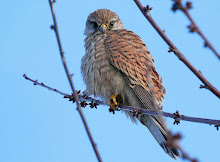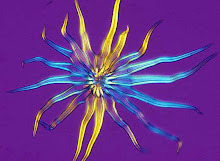Poor photo (heavily cropped, taken with an old phone in deep shade) but this appears to be a queen wasp mating with drones. They all flew away, still locked together, before I could get a better picture.
Mid-July seems very early for new queens to be leaving a
nest - they usually hibernate after mating - but still plenty of summer left
for her to start a new nest this year, I suppose.
Two wasp generations in one summer? Are seasonal patterns of insect
behaviour confused by changing climate, maybe?
This morning, riverbank footpath, Durham city




























